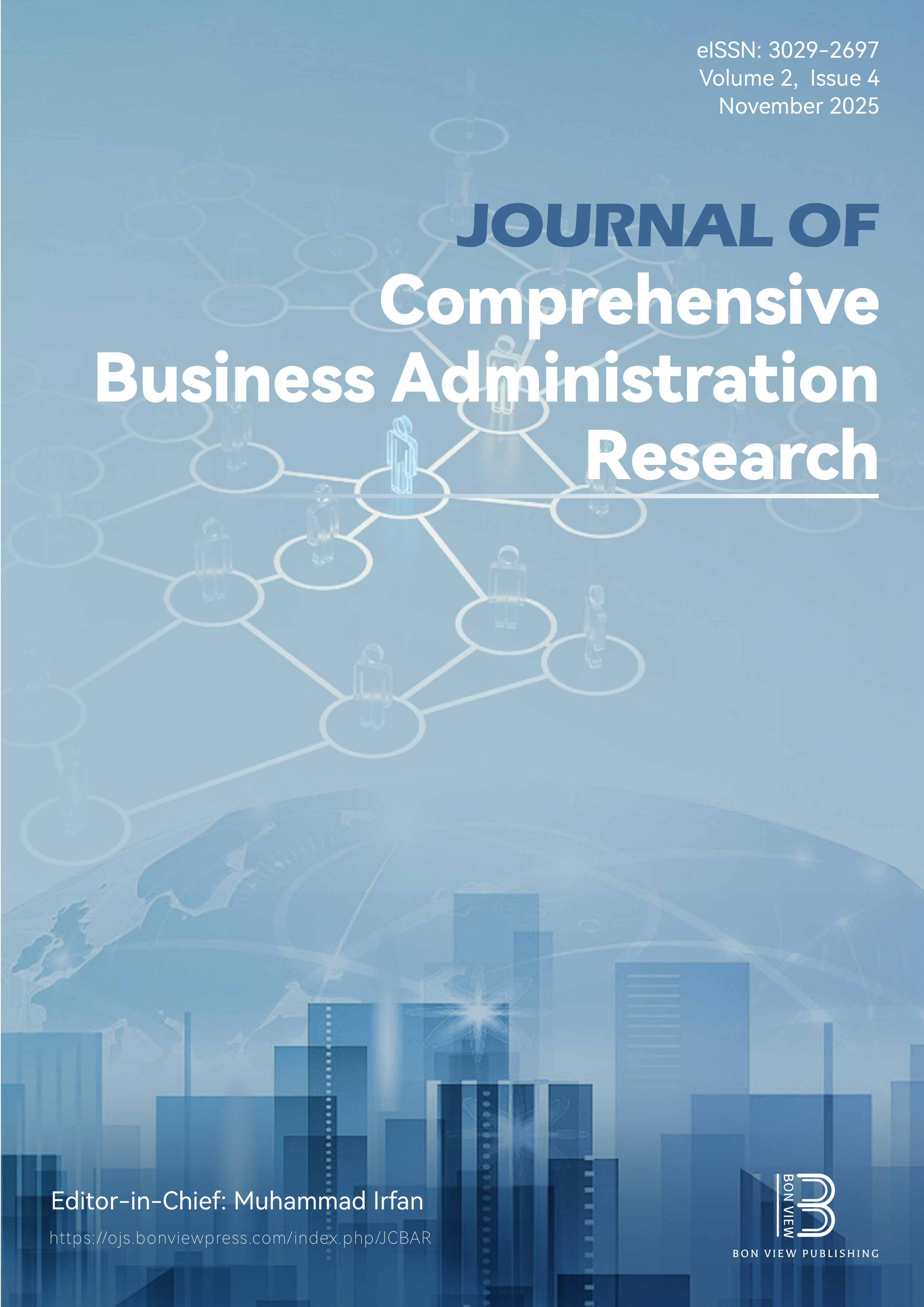Credit Scoring Model Weighted by Investment and Financing Decisions: Case Study in a Building Supply Store
DOI:
https://doi.org/10.47852/bonviewJCBAR42023939Keywords:
credit scoring, optimization methods, Credit Scoring Models, micro and small companiesAbstract
Current literature provides various models for credit risk analysis, called Credit Scoring Models (CSMs). However, these models are not suited to the majority of Micro and Small Enterprises (MSEs). This is compounded by a lack of technical knowledge of microentrepreneurs linked to the high costs and complexity of the CSMs. These issues are significant as 99% of Brazilian companies are MSEs. Therefore, this paper aims to propose a CSM for an MSE that commercializes construction materials in São Paulo, Brazil. This research is quantitative and characterized as a case study whose CSM is based on the Naive Bayes algorithm implemented in Microsoft Office Excel 2016. This model calculates the probability of default and adherence by weighting the results based on the Modern Finance Theory with the Cost of Denying and the Cost of Granting. The application of the model demonstrates that the successes in approvals (70%) and disapprovals (66%) of Credit Sales were significant with a result of R$ 32.20 thousand and an increase in net profit by 124.2%. We have evidenced that the proposed CSM is able to weigh the risk in investment and financing decisions for the Credit Sales of an MSE. This paper provides a low-cost CSM, adapted to reality and easy to handle and implement in MSEs. This research is a reference to the development of CSMs focused on the credit concessions conducted by MSEs.
Received: 25 July 2024 | Revised: 20 September 2024 | Accepted: 30 October 2024
Conflicts of Interest
The authors declare that they have no conflicts of interest to this work.
Data Availability Statement
Data are available from the corresponding author upon reasonable request.
Author Contribution Statement
Elias Shohei Kamimura: Conceptualization, Methodology, Software, Validation, Formal analysis, Investigation, Resources, Data curation, Writing - original draft, Writing - review & editing, Visualization, Supervision, Project administration. Anderson Rogério Faia Pinto: Conceptualization, Methodology, Validation, Formal analysis, Investigation, Data curation, Writing - original draft, Writing - review & editing, Visualization, Supervision, Project administration, Funding acquisition. Marcelo Seido Nagano: Conceptualization, Methodology, Investigation, Writing - review & editing, Visualization, Supervision, Project administration, Funding acquisition.
Downloads
Published
Issue
Section
License
Copyright (c) 2024 Authors

This work is licensed under a Creative Commons Attribution 4.0 International License.
How to Cite
Funding data
-
Conselho Nacional de Desenvolvimento Científico e Tecnológico
Grant numbers 312585/2021-7;404819/2023-0 -
Fundação Nacional de Desenvolvimento do Ensino Superior Particular
Grant numbers 2700441


